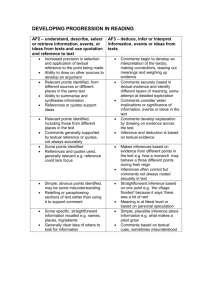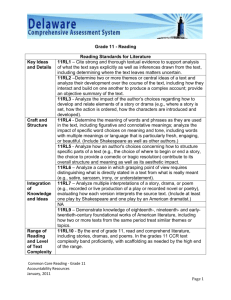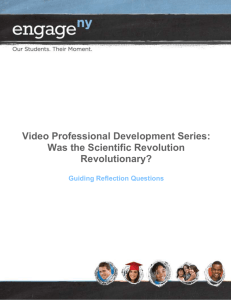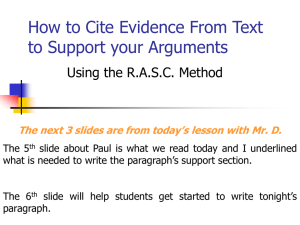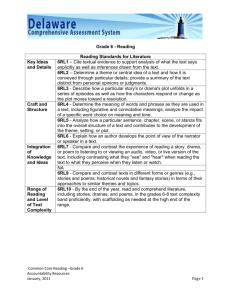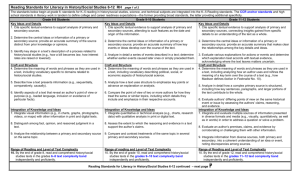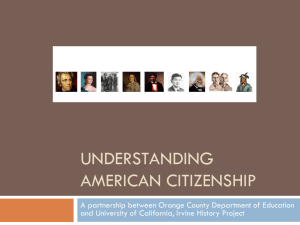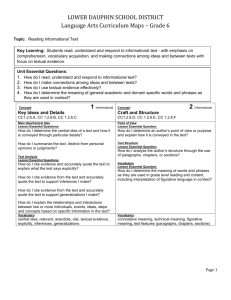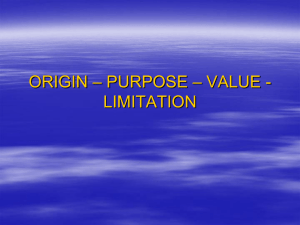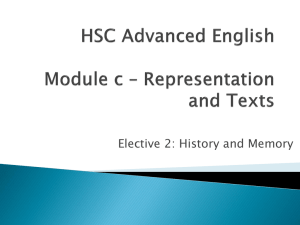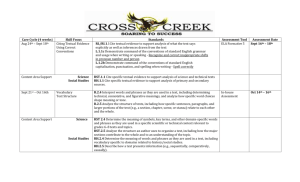Point Of View - Social Studies Curriculum
advertisement
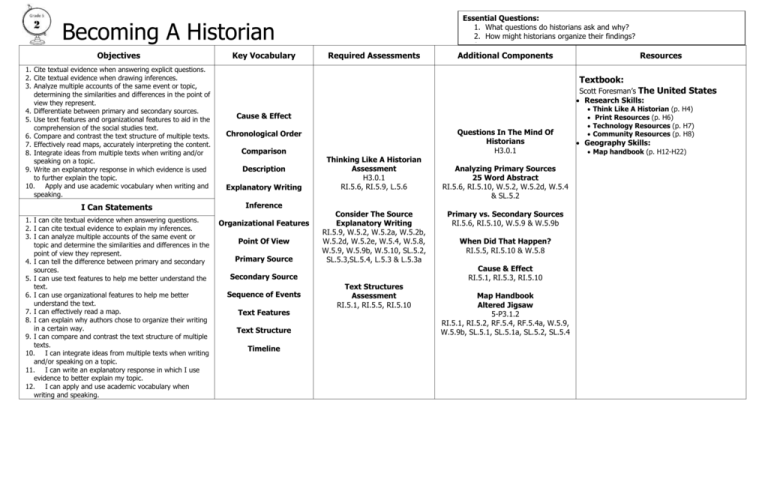
Essential Questions: 1. What questions do historians ask and why? 2. How might historians organize their findings? 3. Becoming A Historian Objectives 1. Cite textual evidence when answering explicit questions. 2. Cite textual evidence when drawing inferences. 3. Analyze multiple accounts of the same event or topic, determining the similarities and differences in the point of view they represent. 4. Differentiate between primary and secondary sources. 5. Use text features and organizational features to aid in the comprehension of the social studies text. 6. Compare and contrast the text structure of multiple texts. 7. Effectively read maps, accurately interpreting the content. 8. Integrate ideas from multiple texts when writing and/or speaking on a topic. 9. Write an explanatory response in which evidence is used to further explain the topic. 10. Apply and use academic vocabulary when writing and speaking. Key Vocabulary Required Assessments Additional Components Resources Textbook: Scott Foresman’s The United States Research Skills: Cause & Effect Questions In The Mind Of Historians H3.0.1 Chronological Order Comparison Description Explanatory Writing I Can Statements Inference 1. I can cite textual evidence when answering questions. 2. I can cite textual evidence to explain my inferences. 3. I can analyze multiple accounts of the same event or topic and determine the similarities and differences in the point of view they represent. 4. I can tell the difference between primary and secondary sources. 5. I can use text features to help me better understand the text. 6. I can use organizational features to help me better understand the text. 7. I can effectively read a map. 8. I can explain why authors chose to organize their writing in a certain way. 9. I can compare and contrast the text structure of multiple texts. 10. I can integrate ideas from multiple texts when writing and/or speaking on a topic. 11. I can write an explanatory response in which I use evidence to better explain my topic. 12. I can apply and use academic vocabulary when writing and speaking. Organizational Features Point Of View Primary Source Thinking Like A Historian Assessment H3.0.1 RI.5.6, RI.5.9, L.5.6 Consider The Source Explanatory Writing RI.5.9, W.5.2, W.5.2a, W.5.2b, W.5.2d, W.5.2e, W.5.4, W.5.8, W.5.9, W.5.9b, W.5.10, SL.5.2, SL.5.3,SL.5.4, L.5.3 & L.5.3a Secondary Source Sequence of Events Text Features Text Structure Timeline Text Structures Assessment RI.5.1, RI.5.5, RI.5.10 Analyzing Primary Sources 25 Word Abstract RI.5.6, RI.5.10, W.5.2, W.5.2d, W.5.4 & SL.5.2 Primary vs. Secondary Sources RI.5.6, RI.5.10, W.5.9 & W.5.9b When Did That Happen? RI.5.5, RI.5.10 & W.5.8 Cause & Effect RI.5.1, RI.5.3, RI.5.10 Map Handbook Altered Jigsaw 5-P3.1.2 RI.5.1, RI.5.2, RF.5.4, RF.5.4a, W.5.9, W.5.9b, SL.5.1, SL.5.1a, SL.5.2, SL.5.4 Think Like A Historian (p. H4) Print Resources (p. H6) Technology Resources (p. H7) Community Resources (p. H8) Geography Skills: Map handbook (p. H12-H22)
